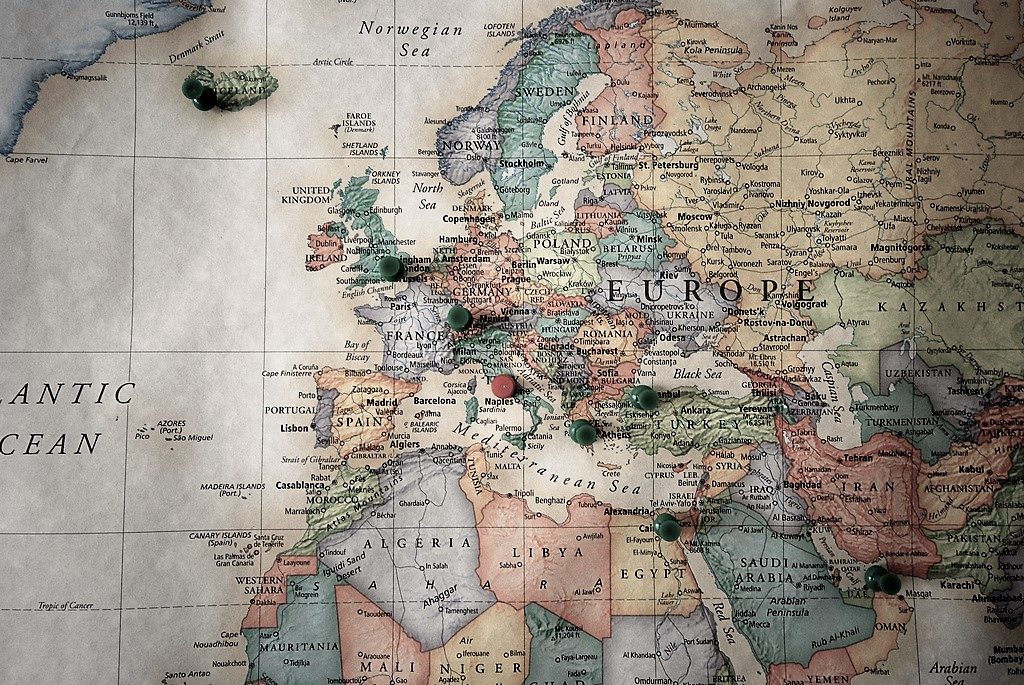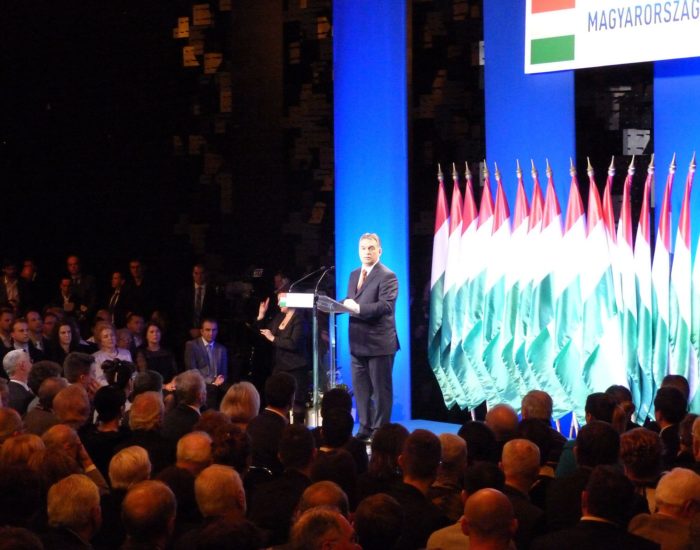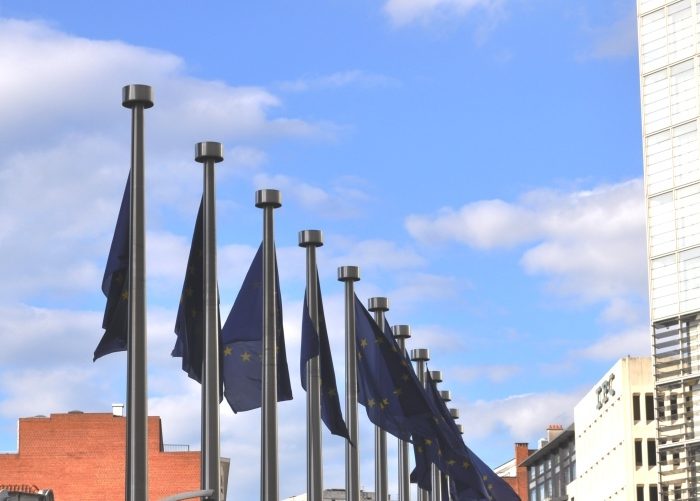Populism in Europe — An increasingly polarized landscape
By Alexandru Filip.

Recent elections and election forecasts have given us many a reason to pause and think about the evolution of the political landscape in Europe and beyond. In a number of countries, political parties and actors that lay on the fringes of the political scene are mounting an ever growing challenge for the centre stage of the electoral race. The causes are multiple and intertwined, ranging from voter dissatisfaction with the cartelisation of politics, to the erosion of party-constituency ties, to growing apprehension about globalisation. One of the consequences of said developments is the growing success of populist or fringe parties, and a growing polarisation of policy preferences within the landscape of public opinion.
Forays in a world of populist challengers
Consider Austria, where the most recent presidential election produced a run-off result so close that the country’s constitutional court has decided that the second round of the election must be repeated. While this in itself might seem news-worthy and enough to attract attention to a national political scene that rarely makes the world headlines, it is not the most interesting or noteworthy aspect surrounding it.
More important perhaps is the fact that neither of the two candidates come from one of the two main, established parties of Austrian politics (the candidates of the SPÖ and the ÖVP came 4th and 5th respectively). Not only was there a poor showing by the historical Volksparteien, but the two candidates that made it to the second round represent what is arguably the poles of the political landscape: Norbert Hofer of the right-wing Austrian Freedom Party and Alexander Van der Bellen, nominally an independent candidate but actually a member of the Green Party.[1]
The landscape of public opinion and political preferences has become such that voters are abandoning the political centre for fringes of the political spectrum. This phenomenon is not isolated. It is instead part and parcel of a larger wave of political discontent with mainstream politics combined with an apparent polarisation of public opinion and political preferences (especially/more so along the lines of alternative political dimensions). This manifests itself in growing voter defections whereby individuals are taking their all precious vote either to a (re-)surging populist far right that espouses communitarian, conservative, anti-immigrant, anti-globalisation as a political message, or a left wing scene (often populist as well) that combines a traditional focus on social equity and redistribution with progressive positions on immigration, environment, bottom-up decision making.
A growing trend
While Austria might be a particularly expressive example of this phenomenon (because the second round run-off forces candidates out of the race and both remaining candidates were interestingly ‘fringe’ candidates), such tendencies can be detected in many other western polities.
A process of a somewhat similar flavour is animating German politics, where current forecasts predict that the coming legislative elections will see significant losses by both the CDU as well as the SPD, with the AfD and the Green Party gaining at their expense. Opinion polarisation has been galvanised by issues such as the Euro crisis and the recent refugee crisis, with political actors and segments of society taking sides on a cleavage defined seemingly ever more by a cosmopolitan-nativist (pro/anti – immigration, refugees, EU) divide where the AfD stands at one pole and more progressive, left-leaning forces (The Greens, for example) at the other.
In the USA, among the last three persons vying for nomination as presidential candidates (D. Trump having already secured Republican nomination and B. Sanders and H. Clinton fighting over the Democratic one) one advocated policy views often decried as far-right populist, while another ran on a populist left-wing platform. Both presented the idea of ‘turning away’ from mainstream politics in a break with the past and the political establishment.
In Great Britain, UKIP has not only mobilised on the issue of European Integration and forced debate about it to the very centre of the political agenda, it has managed to achieve and accomplish its raison d’etre: the United Kingdom has voted to leave the European Union. At the same time, the two main political parties (reflecting developments across the ocean) are forced to put up with internal tensions that reflect wider voter apprehension with mainstream politics. The main centre-left party is rebelling against its leader whom some deem to be too far to the left (but appears to have the backing of the masses), while on the centre-right the Tories are struggling to balance the competing demands of moderation and opposition to integration.
A reversed picture in the South
In Southern Europe, the relative strength and influence of the far right and the more progressive far left is somewhat reversed compared to the rest of the continent, with right wing populism being the weaker pole.
The Lega Nord in Italy was for a long time the country’s ‘flagship’ eurosceptic party and its leader, Umberto Bossi, was perhaps the face of Italian euroscepticism until Giuseppe Grillo initiated the Five Star Movement. While being a populist, anti-establishment, anti-EU party, the latter is also characterised by a focus on sustainability, environmentalism, and grass-roots orientation (the party is sometimes even referred to as an ‘e‑party’). While the Lega Nord has maintained its position and supporters on the far right of Italian politics, the Five Star Movement has been a juggernaut in Italian politics drawing large numbers of voters from other parties – only a few years after its birth, it has become the largest opposition party in Italy, and the second largest behind the social-democratic PD (the PD itself resulted after a series of mergers by various smaller centre-left parties).
In Greece, the social fallout of the Euro crisis and the election of Alexis Tsipras has produced a situation that is simultaneously a tragedy and fairy tale of socialism and the far left in Europe. Syriza’s left wing leader became Prime Minister in the economically embattled country, but the political scene there has had to contend with populist forces from the other edge of the ideological landscape as well: right wing parties such as Golden Dawn and The Independent Greeks have contributed to the sap in support for traditional, more established parties.
Spain seems to have been spared the fight with right-wing populism. While the left-wing anti-establishment Podemos has managed to become the third best represented party behind the established PP and PSOE, the other party that is attracting voters at the expense of other, traditional, political actors is the moderate Ciudadanos. These are just some examples from Europe’s (and beyond) more important national political arenas, where the ideological centre is losing to both the right and the left.
A postulate of change
Historically, the structure of political conflict and the shape of political parties has often been a function of wider societal political change. From ‘Weltanschaungsparteien’ to the Mass Party in the era of expanding enfranchisement, and from Kirchheimer’s Catch-all Party to the cartelisation of parties in more recent times [2], the nature of the contest between parties has been a function of the changing landscape of constituencies and dynamics of public opinion.
Western polities are increasingly characterised by the simultaneous weakening of party ties, discontent with traditional politics and the growing gap between supporters and opponents of globalisation, integration, denationalisation. In 2008, Hanspeter Kriesi and colleagues [3] described the latter process in their now famous New Cleavage Hypothesis.
One question that might be posed here is the following: if current trends of political defection from historical political parties to alternative, less established parties continue; and if the trends of defection continue to be multi-directional (in other words, if voters move towards political entrepreneurs on both the right and left wing, resulting in voter distributions that are ever less bell-shaped and ever more flat), what consequences might this hold for electoral politics and inter-party competition in the near and mid-term future? Is this a mere temporary weakening of large centre parties, or a more lasting effect? If current polarisation and divisiveness over cultural and ‘vertical’/non-economic policy issues remain (or grow) what will that mean for the future of catch-all politics in ‘the West’?
A new era of politics
I suspect that we are at the doorstep of a new era of party politics, in which aggressive challenger parties try to carve out as big a niche as possible before established ones abandon the strategy of ‘winning it all’, and attempt to hunker down and defend territory. As progressive and conservative fringe parties are tapping into popular angst, energy, hope and disillusionment, they will leave mainstream parties with no choice but to adapt and try to tap into that same electoral capital by seeking to ‘get back in touch’ with voters.
In the USA, one might arguably say that this is taking shape, as the Republican Party found itself ever more inspired by the Tea Party Movement. Empowering the so-called Freedom Caucus and pressuring republican congressional candidates by lending or withdrawing support for them, the small but vocal movement managed to influence and draw large parts of the party to the right not by large numbers and resources, but robust bottom-up activism and intense commitment. Such traits are particularly effective in primary and 2nd order elections, and were also manifested in the primary contest that was won by Donald Trump. Calls are currently growing within the rank and file of the Democratic Party to align the party with the ‘Sanders movement’. Moderate democrats are contemplating surrender and handing over the keys to the left wing of the party. A consequence of such actions further down the line might be a decreasing opportunity space for bi-partisan politics between the two major parties.
In multi-party systems, as the distribution of power between centre parties and fringe parties evens out (even if not entirely, at least to some degree), and Social Democrats and Christian Democrats find themselves relying on an ever more ideologically central and thinning voter base, the question is who will defect first from the current tacit consensus on mainstream politics: the centre left or the centre right? The political horizon appears tumultuous.
–
Alexandru Filip is a PhD candidate at the Bremen International Graduate School of Social Sciences, at the University of Bremen. He is pursuing a PhD on the topic of the influence of eurosceptic parties on the political mainstream in Western Europe. His favourite topics include the European Integration, comparative European politics, electoral dynamics and the study of populism.
Disclaimer
The views and opinions expressed in this article are those of the author.
–
[1] Green parties have traditionally been labelled as fringe parties or single-issue parties due to their focus on environmental issues, alternative politics and anti-establishment, grass-roots oriented stances, but are commonly associated with the left wing pole of the ideological spectrum.
[2] For an overview of the catch-all party thesis, see Krouwel, André (2003) ‘Otto Kirchheimer and the catch-all party’, West European Politics, 26: 2, 23 — 40.
[3] Kriesi, H., Grande, E., Lachat, R., Dolezal, M., Bornschier, S. and Frey, T. (2008) West European Politics in the Age of Globalization. Cambridge University Press.
–
Picture: Travel Map: Europe by Kevin Hale (own work) via Flickr, released under Creative Commons.



